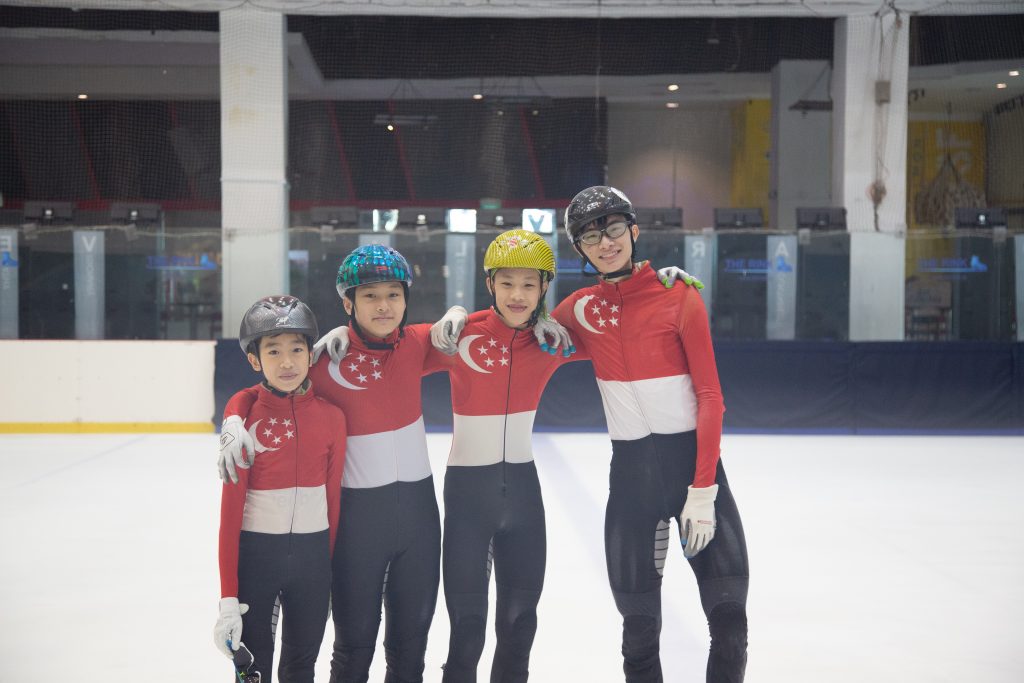Singapore has no lack of track and field stadiums, but when it comes to an Olympic-sized ice skating rink, there’s only one at JCube.
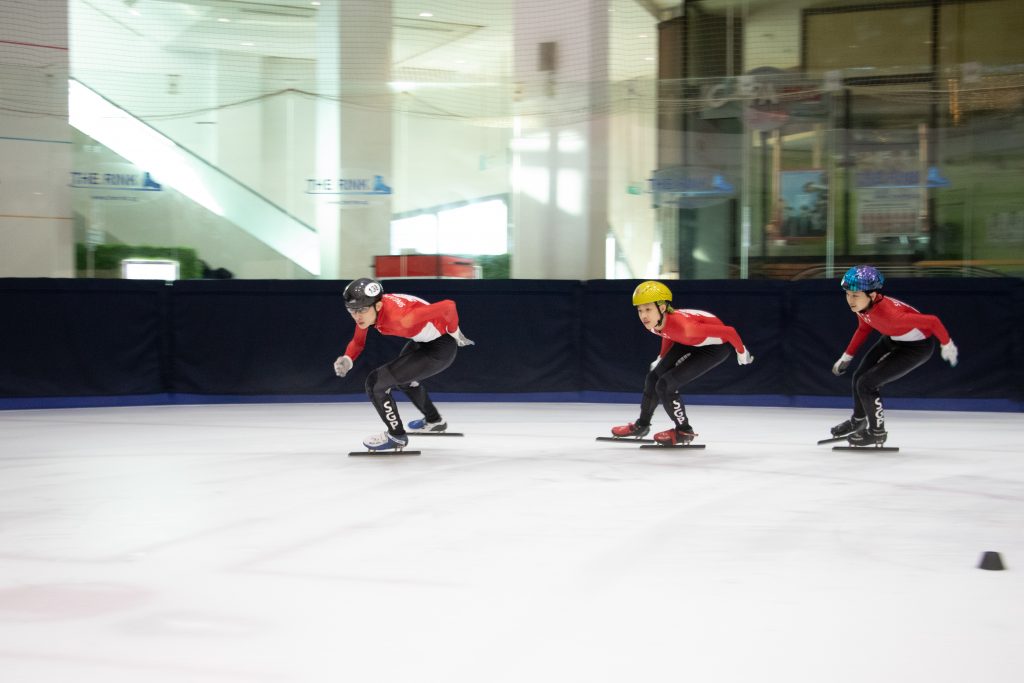
That’s the first challenge facing winter athletes like Zen Koh and Alyssa Pok, who are both in Team Singapore’s short track speed skating team.
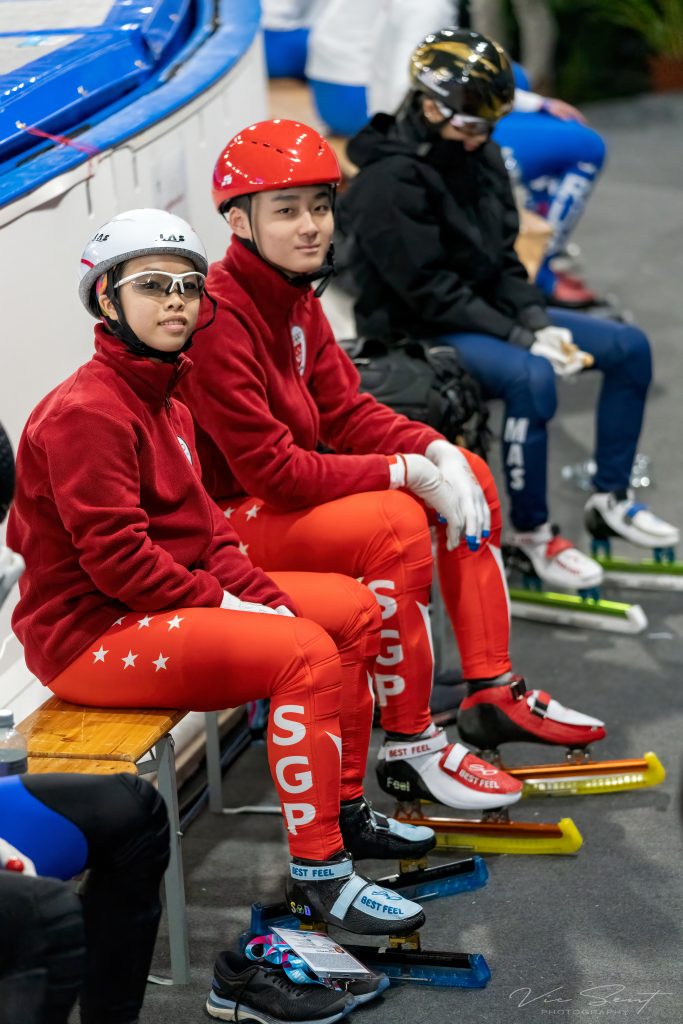
For short track speed skating, a skater would race in his or her designated 111.111m-long ice track on 1mm-thick skating blades at an average speed of 45km an hour. The categories range from 500m individual to 5000m relay.
As The Rink @ JCube is open to public, national skaters can only train on ice after opening hours. Further, the available hours have to be split with other winter athletes such as figure skaters and ice hockey players, who also need the venue for training.
As such, to train intensively, speed skaters have to be prepared to travel abroad.
“Each school holiday, I travel to Korea to train with my personal coaches,” said Alyssa, who represented Singapore at January’s Winter Youth Olympic Games at Switzerland.
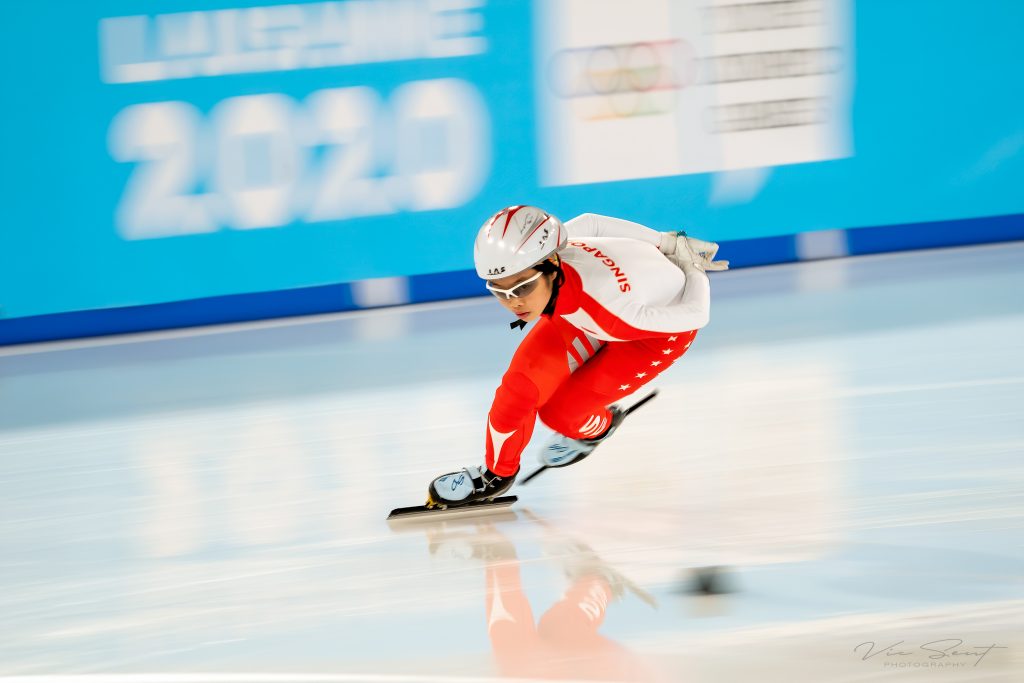
“In Busan, we have 1 to 2 ice sessions a day with a mix of other forms of dry land training,” the 16-year-old said, adding that she typically trains for 8 hours a day, 6 days a week while in Korea.
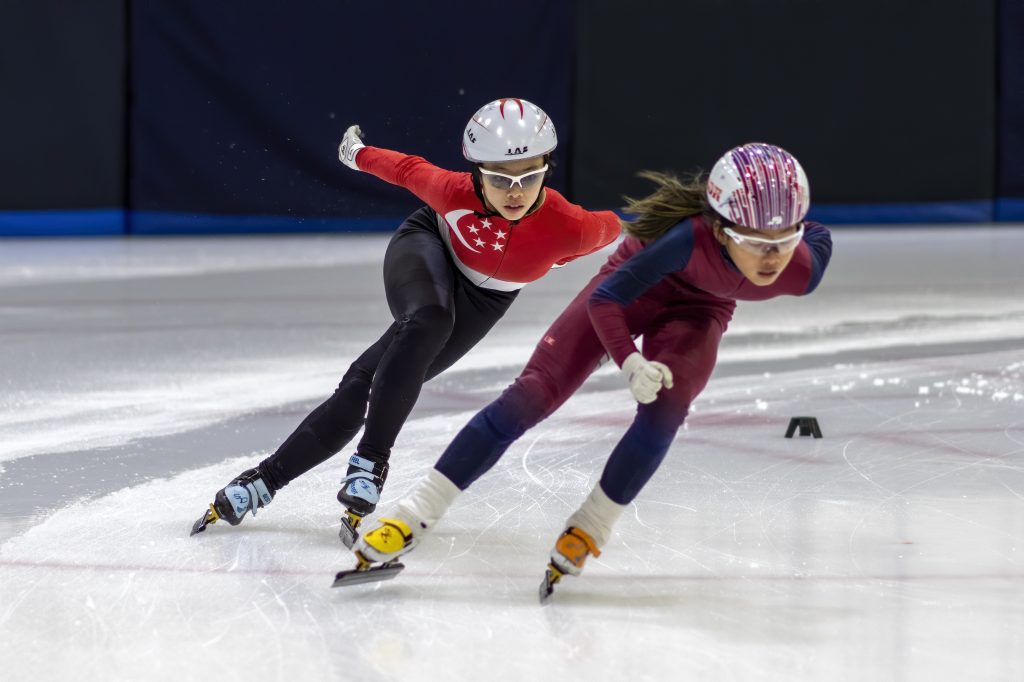
The second challenge is the need to juggle training and studies, and that’s not easy for teen athletes in Singapore given the demanding academic load here.
But even with training and competitions, Alyssa is not cutting herself any slack when it comes to school work.
“If I have to skip a few days of school due to an overseas competition, I would always make sure that I meet up with my teachers for consultation so that I will not miss out on anything when I get back to school,” she said.
Thirdly, speed skating can be an expensive sport. The training sessions and overseas trips don’t come cheap. This pair of ice skates alone costs Zen, another national skater managed by the Singapore Ice Skating Association (SISA), close to $2,000.
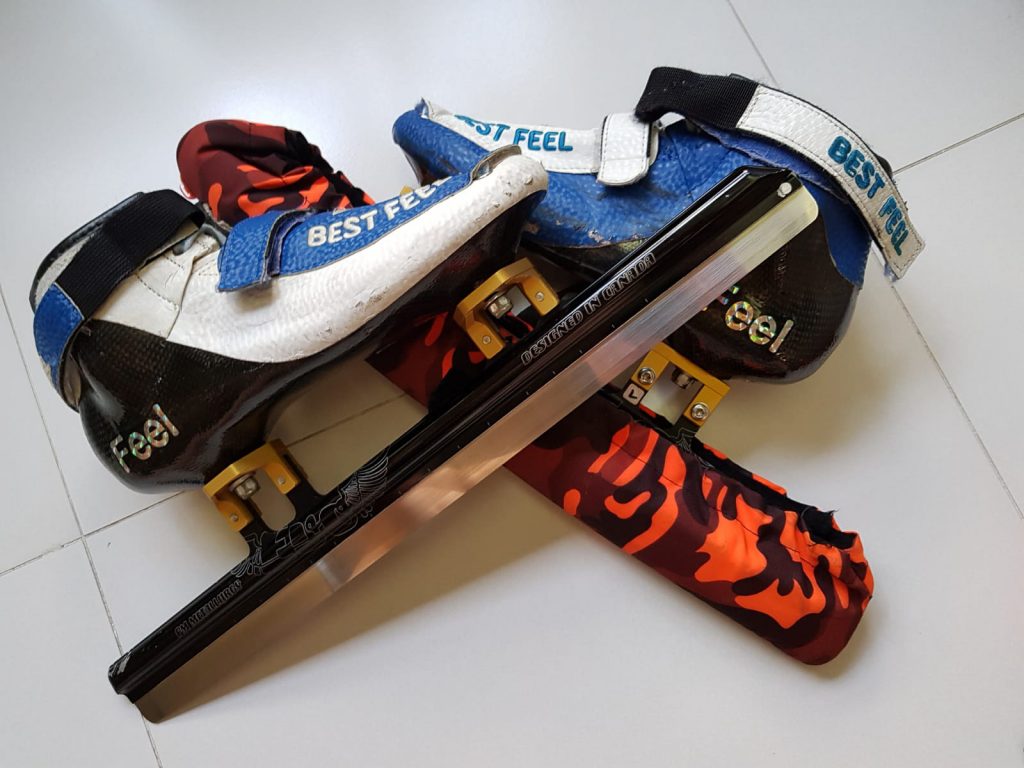
But Zen is determined to press on, even more so after winning Gold for the 3000m Men’s Relay at last year’s Southeast Asian Games.
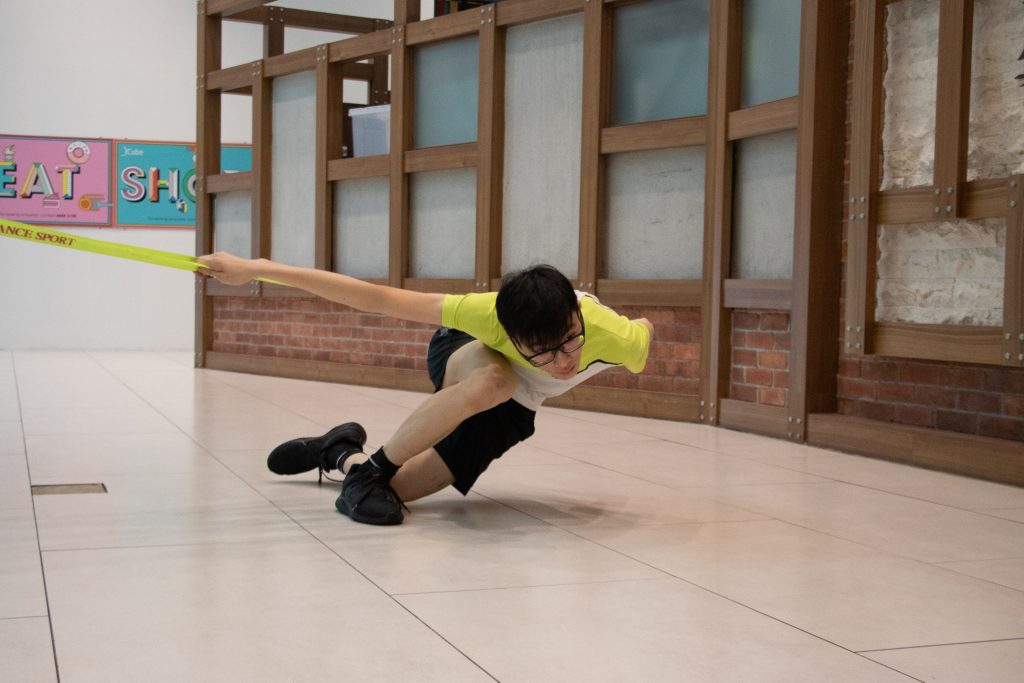
The 17-year-old is training hard both on and off-ice twice a day, 6 days a week to improve his performance.
“The process repeats itself continually but I do enjoy what I’m doing so there’s no reason to put a break to it,” Zen said.
